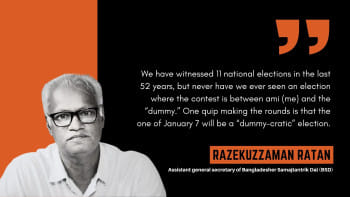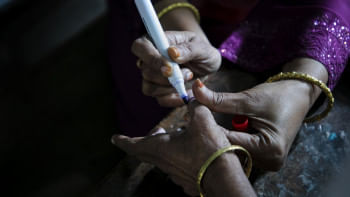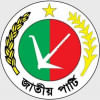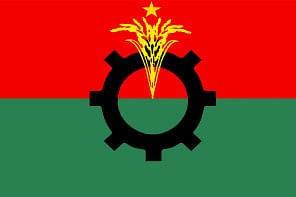Political parties need to behave more responsibly towards the electorate

My experience and the experiences of the people I have spoken to suggest that voter turnout was low across the country. When I went to my voting centre at 12pm, they said the turnout was five to six percent. There was also a team of local election observers whom I met as I was leaving and they shared that their observation was similar. That was in the morning. Now, the CEC is suggesting that voter turnout was around 40 percent. I do not wish to dispute the CEC's statement, my statement is based on just one centre, it could be that turnout was high in other centres across the country.
What I also heard when I asked about other constituencies, particularly in rural areas, was that there was intimidation of voters and polling agents. My rickshaw puller said he didn't want to vote because he doesn't like any of the candidates, but asked me whether it's true that his citizenship would be revoked if he didn't vote. I assured him that no such thing can happen. I have heard stories from the field that in places where the party in power is not performing well, there have been incidents of intimidation. There are also some allegations of vote rigging, which the CEC himself has also admitted. He claimed that he is going to verify each of those incidents, but it remains to be seen how diligently the Election Commission does this. We wait and hope.
The biggest issue with this election is that, apart from Awami League—and Jatiya party, which has its own internal strifes—the other parties don't have much experience of the kind of role they need to play as part of an election in our part of the world. The newly formed parties lack the power or capacity to ensure the presence and security of polling agents in the centres they are contesting. I have heard complaints of intimidation and not being allowed inside the polling centres. If a party doesn't have a polling agent, its candidates really can't know what's happening inside. Insecurity, fearing a backlash, not getting support, even from the administration which is under the Election Commission, leaves space for irregularities to take place. The more influential or experienced independent candidates are much more savvy at dealing with the election as a system. Let us wait to see how they fare.
But let's face it: at the end of the day, the point of this election was to have an election as part of our Constitutional obligation. Even if the election would have been held later, the situation and outcome would have been the same, with no main opposition participating. As for where we go from here, I believe that the people have to be more alert, assertive, and vocal. Instead of sitting on the fence, playing safe, worrying about whether they appear to be on one side or the other, they have to begin to play a more decisive role against irregularities and injustices. Not just our intellectual urban elite, it is only when our citizens from all walks, from rural and so-called backward areas begin to assert their rights and freedoms will change happen. We collectively need to rethink how the masses can be truly represented. Maybe start thinking of a change of the current election system. One has to also start forcing political parties to behave more responsibly towards their constituents. The citizens should have the space to ask questions, demand genuine accountability, and force political parties to behave—to be more responsible and responsive. All parties, not just the party in power, not only the opposition in Parliament, but all political parties including those outside the parliament. After all, political parties are in existence for this purpose only.
As a last point, I would like to add that any political party that does not believe in the four basic tenets of Bangladesh's costitution, as were enshrined in our first constitution and remain such today (most importantly, secularism), should not be allowed to function.
Khushi Kabir is a rights activist and coordinator of Nijera Kori.


 For all latest news, follow The Daily Star's Google News channel.
For all latest news, follow The Daily Star's Google News channel. 









Comments